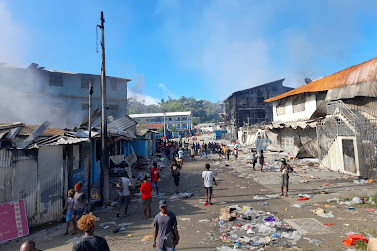Protesters burning down the parliament building and police station, people demanding the resignation of the prime minister. Scenes like this are unfolding In the Island nation of Solomon Islands. It is located south of Australia.
Protestors of the Solomon Islands are asking Prime Minister Manasseh Sogavare to design from his post. China has a major role to play in this. To understand how a peaceful oceanic nation has spiraled down to this chaos, let's go back to 1971.
7 July 1971 Solomon Islands got its independence from Britain. 1971 was also the year when China was recognized by the UN instead of Taiwan. Many countries also followed the suit in recognizing China. But Island nations of the Pacific didn't give China recognition. One such nation was Solomon Island which recognized Taiwan in 1983. Taiwan and the island nation shared good relations for 36 years.
In 2019 new prime minister Manasseh Sogavare switched diplomatic allegiance from Taiwan to China. Malaita, one of the centers of power and the most populous island of the country didn't agree with this decision.
People of Malaita were fearful that China's autocracy could be mimicked in its country. They still have relations with Taiwan. The Central Government of the Solomon Islands and the state government of Malaita are against each other when it comes to this issue.
Protests are turning into riots in many places. To curb the same Central government has asked Australia for military help.
It will be interesting to see how
geopolitics will shape the feat of a small Island nation of a population of
just 7 lakhs.

Comments
Post a Comment